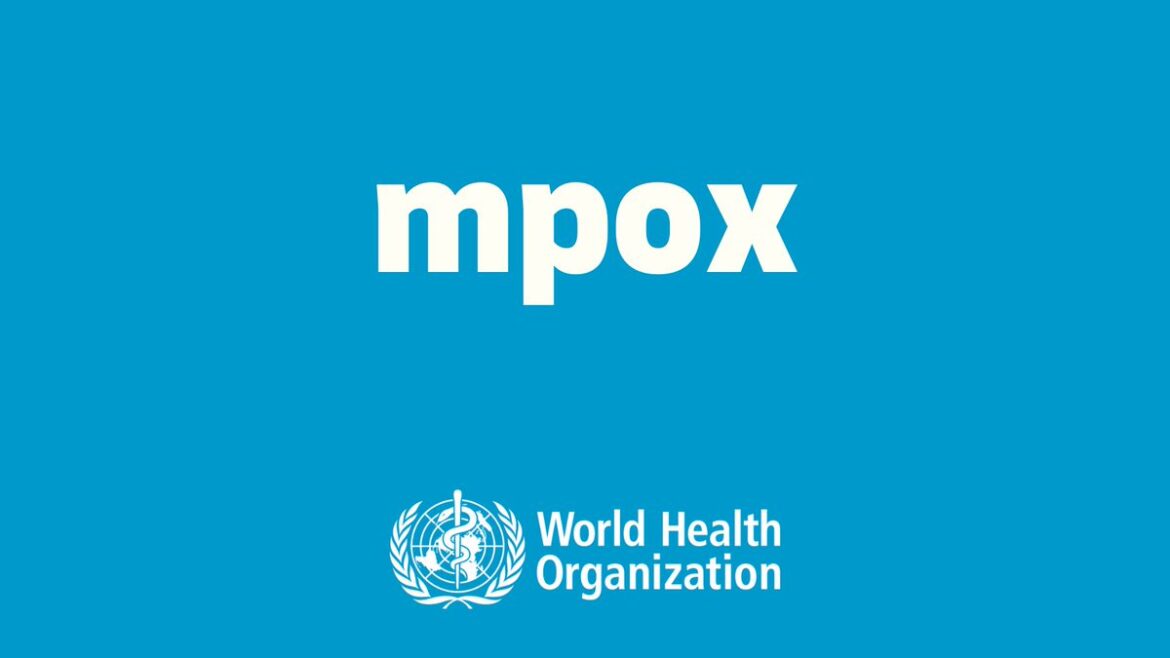By Muhammad Amaan
The World Health Organisation (WHO) has called for an emergency meeting on mpox, following its spread outside the Democratic Republic of the Congo (DRC).
Mpox – formerly called monkeypox – is a viral disease endemic in Central and West Africa.
It can be transmitted through physical contact with an infected person, animal or contaminated materials.
Symptoms include skin rash or lesions, accompanied by fever, headache, muscle aches, back pain, low energy and swollen lymph nodes.
Mpox came to global prominence two years ago after cases emerged across the world amid the COVID-19 pandemic.
That outbreak was declared a public health emergency of international concern in July 2022 and ended the following May.
In light of the situation, and the potential for further international spread within and outside Africa, WHO Director-General Tedros Ghebreyesus convened an Emergency Committee.
The committee is to advise him on whether the outbreak represents a public health emergency of international concern.
The designation is the UN agency’s highest level of alert.
“The committee will meet as soon as possible and will be made up of independent experts from a range of relevant disciplines from around the world,” he said in Geneva on Wednesday.
Ghebreyesus said the DRC had been experiencing a severe outbreak of mpox since the beginning of the year.
More than 14,000 cases and 511 deaths have been reported.
Although outbreaks have been reported in the country for decades, and the number of cases reported annually has been increasing steadily, the caseload for the first six months of this year matches the total for all of 2023.
“In the past month, about 50 confirmed and more suspected cases have been reported in four countries neighbouring the DRC that have not reported before: Burundi, Kenya, Rwanda and Uganda,” he said.
Ghebreyesus explained that mpox outbreaks are caused by different viruses called clades.
Clade 1 has been circulating in the DRC for years, while clade 2 was responsible for the global outbreak which began in 2022.
The current outbreak in the eastern DRC is caused by a new offshoot of clade 1, called clade 1b, which causes more severe disease than clade 2.
It has been confirmed in Kenya, Rwanda and Uganda, while the clade in Burundi is still being analysed.
“At the same time, cases of clade 1a have been reported this year in DRC, the Central African Republic and the Republic of Congo, while clade 2 has been reported in Cameroon, Côte d’Ivoire, Liberia, Nigeria and South Africa,” Ghebreyesus said.
WHO is working with the governments of the affected countries, the Africa Centre for Disease Control, non-governmental organisations, civil society and other partners, to understand and address the drivers of these outbreaks.
Ghebreyesus stressed that stopping transmission will require a comprehensive response that puts communities at the centre.
WHO has also developed a 15 million dollars regional response plan to support surveillance, preparedness and response activities.
This is in addition to releasing 1 million dollars from an emergencies’ fund to support scale-up of the response, with more to follow.
Currently, two mpox vaccines have been approved by WHO-listed national regulatory authorities, and which its expert group on immunisations, SAGE, have also recommended.
“I have triggered the process for Emergency Use Listing of both vaccines, which will accelerate vaccine access particularly for lower-income countries, which have not yet issued their own national regulatory approval,” he said.
Emergency Use Listing means that the global vaccine alliance, Gavi, and the UN Children’s Fund (UNICEF) will be able to procure doses for distribution.
The partners were also members of the global mechanism to ensure COVID-19 vaccine equity, known as COVAX.




